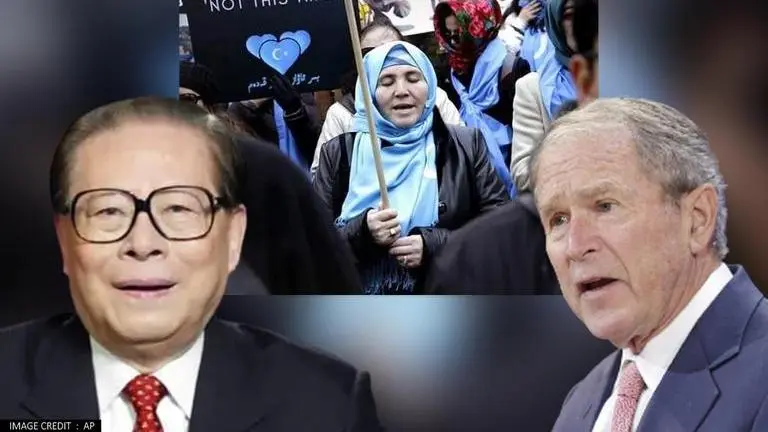Updated 13 September 2021 at 10:55 IST
China's CCP exploited 9/11 tragedy for repression of Uyghur Muslims in Xinjiang: Report
The CCP categorically exploited the international backlash towards terrorism triggered by the 9/11 attacks to repress the Muslim Uyghurs in Xinjiang.
- World News
- 3 min read

The Chinese Communist Party (CCP) categorically exploited the international backlash towards terrorism triggered by the 9/11 attacks to repress the Muslim Uyghurs in Xinjiang, as per an American publication. According to a report by Politico, former Chinese president Jiang Zemin sent a telegram to the then US President George W Bush conveying China's 'deep sympathy and condolences'.
Following that, Bush and Zemin met and the former had praised both countries' new joint anti-terrorism focus. Bush had apparently remarked that there was 'no doubt that China would stand with the United States and our people during this terrible time.' According to Sean R. Roberts, associate professor at George Washington University's Elliott School of International Affairs, China framed Xinjiang as a 'terrorist threat' which gave it a platform before the international community.
'US set a precedent for suspending human rights of anybody considered a terrorist'
"Framing [Xinjiang] as a terrorist threat suddenly gave a lot of latitude to China in terms of what it could do in the eyes of the international community because, of course, the U.S. in many ways set a precedent for suspending human rights for anybody considered a 'terrorist'," said Sean R. Roberts,
After the 9/11 attacks, the United States focused on Central Asia and the Middle East as it deployed it troops there as a part of its 'War on terror' campaign. On the other hand, China pursued its agenda of stamping central government authority with a distinctive identity of the majority Han population across a restive region dominated by ethnic and religious minorities. In addition, US paranoia about Islamic terrorism matched with Chinese paranoia about any challenges ti the Communist Party.
"U.S. paranoia about Islamic terrorism was only matched by Chinese paranoia about any challenge to the Communist Party," said Richard Boucher, a former assistant secretary of State for Central Asia and State Department spokesperson from 2000 to 2005.
Soon, the Chinese narrative on Xinjiang changed from that of a stable region with scattered elements of "separatists'' to that of a battleground beset by al-Qaeda-funded terror groups. Moreover, the United States acknowledged and endorsed the narrative pushed forth by China by designating a then little-known entity, the East Turkistan Islamic Movement (ETIM), as an international terror group.
Advertisement
"The 'Global War on Terror' provided the Chinese Communist Party (CCP) with a vocabulary and a framework for its leaders to criminalize Uyghur ethnicity in the name of 'counter-terrorism' and 'de-extremification'," said Tim Grose, associate professor of China studies at Rose-Hulman Institute of Technology.
The CCP now had a convenient frame to trace all violence to an 'international terrorist organization' and connect Uyghur religious, cultural and linguistic revivals to 'separatism."
With ANI Inputs
Advertisement
Published By : Shloak Prabhu
Published On: 13 September 2021 at 10:55 IST
